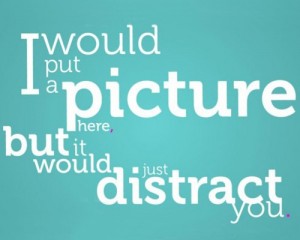 Chapter 1…
Chapter 1…
*blinking cursor*
First sentence, first sentence. Let’s see. Hmm. It’s got to be grabby. My main character has to be in the middle of something, something crazy and chaotic. Well, I can clearly see her in my head, rushing around with pillows and blankets, her house overrun by needy supernatural creatures of all sorts.
All sorts? That’s kind of vague. Let’s take a minute and figure out all the different creatures and why they’re there.
I need to organize this. Where are my index cards?
*stares at pile of blank index cards.*
It’s too soon to write anything down in permanent ink. Where’s my white board?
Is it really ten already? I haven’t eaten anything yet. I should eat. I can’t think when I’m starving.
Holy hell, that’s a lot of dishes. Well, I can’t do them until I empty the dishwasher.
God, I’m so hungry. What’s in the fridge?
Gross. I have to clean this out. There’s no real food, just a bunch of leftovers that need to be thrown out. I should clean out the fridge so I can go to the grocery store and buy real food.
The trash can is full. Have to take out the garbage before I can empty out the fridge. Also, with all the dishes in the sink, I hate to add to it with the gunky containers after I throw out the leftovers.
I’ll eat later. First, I should pee.
While I’m in here, I should take a shower. The bathtub really needs to be cleaned. I could do that while I’m in it.
If I shower, I have to get dressed afterwards. Do I have any clean clothes? Technically, yes. But they’re still in the washing machine from two days ago. Probably should run the washer again to freshen them up.
No reason to shower, I guess, if I don’t have anything to put on.
Crap. Is it Friday? I thought it was Thursday. I have to write a blog post. I’ll do that real quick. It’s already late. Then I have to post the link on Twitter and Facebook.
Oooh, I just thought of a perfect first sentence!
Chapter 1…
*blinking cursor*
I am so hungry.










